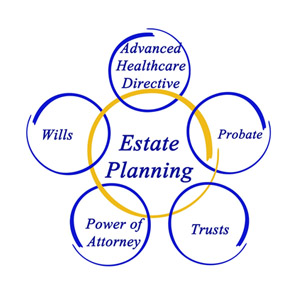
Is Estate Planning Only For When We Die, Or Can It Benefit Us During Our Lifetime?
Attorney Tom McLaughlin always tells people that estate planning is something that you need to have in place for any time you have a life change, or you become of the age of majority. These are the times when you need to have an estate plan.
Many people go wrong with this when they question whether an estate plan matters. Some say, “I’m only 18; I don’t own anything, so I don’t need a will.” And, maybe a will isn’t the most relevant document for that 18-year-old at that moment in time, but a power of attorney and a living will can be beneficial.
A power of attorney or a living will is not a function of what assets you own or control. The power of attorney or living will is more about protecting how your livelihood would be affected if something changes, like becoming disabled or being diagnosed with a disease that has the potential to kill. Say you’re in a horrible accident and are paralyzed from the neck down and must be on a respirator so you can breathe. What would happen if you stopped breathing? Would you want to be revived and have a machine breathing for you for the rest of your days? Would you still have any quality of life?
These situations can happen and are handled with a power of attorney and a living will. Tom counsels and works with his clients. He makes sure his clients have all these documents and sells estate planning documents as a “package,” that way, the client isn’t worrying if something is going to get left out.
In our world, we have a law known as HIPAA, or Health Insurance Portability and Accountability Act. HIPAA describes the fact that your health information is yours and only yours. As somebody who is the age of 18 or older, you control that information. Say you end up unconscious or in a difficult medical scenario and in the hospital. Your parents are worried sick, and when they call the hospital, the hospital tells them that they cannot discuss your condition.
The hospital can’t discuss your medical condition because they do not have a record stating they can speak to anyone should you become incapacitated. In this situation, you’ll find out quickly that you should have gone through with that part of estate planning and designated a healthcare agent.
Designating a healthcare agent provides access and grants authority within the requirements of HIPAA for somebody to get that medical information and help the doctors do what you would want to be done if you could communicate.
When Is The Best Time For Someone To Begin The Estate Planning Process?
According to Tom, the best time to begin the estate planning process would be when you turn 18. He believes you should at least put things in place to protect you. A power of attorney and a living will document are the minimum you should have in place.
A will should be done at the same time because it’s not that complex to complete. It can be changed as life evolves, such as when you get married, have kids, or get divorced. These are some of the decisions you’ll probably want to rethink and, in some instances, may be severed by law in a divorce scenario.
It can be too late to do estate planning if you are no longer cognizant or legally competent to sign documents and make decisions. In this situation, the estate planning ship has sailed because you need to be of sound mind to be able to complete an estate plan and not under duress or anything else that would potentially alter the decisions that you might otherwise have made.
As you approach mid-age, and if you’ve never done a power of attorney or a living will, Tom recommends estate planning because you’re at the point in your life where you need to have a plan. Nobody is promised tomorrow, and once you start hitting 60, 70, and up, you could’ve missed the boat. You still have that chance if you’re at those ages yet legally competent to sign documents. In this situation, Tom recommends getting your estate plan in place sooner rather than later.
How Often Should I Review Or Update My Estate Planning Documents?
Estate planning documents can be changed any time you wish. There are some important things to remember when making changes to a will:
- An original will is what goes to the Recorder of Deed’s office.
- If you change your will, you should physically destroy the old one, so there is no confusion about which version is valid.
A time that you should make changes to any of your estate planning documents is when there is a life-changing event. If you get married, divorced, have kids, or if you move. This is because there may be different laws since estate laws differ by state. Your unique situation may change how you want to leave your estate.
If your residence is in a different state than where you made your will, laws can differ from the initial state. This may be a good reason to at least review your estate planning documents. If you know that the government changed other laws for estate laws, for instance, state taxation laws, Tom recommends you review your estate plan to make sure they accurately reflect, given what you know on that day, how you would want things to go forth.
For more information on the Estate Planning Process & Benefits, an initial consultation is your next best step. Get the information and legal answers you seek by calling (717) 990-7178 today.

Taking care of the legal side of things today will make it so much easier to prevent disputes tomorrow Call Us Now (717) 990-7178

